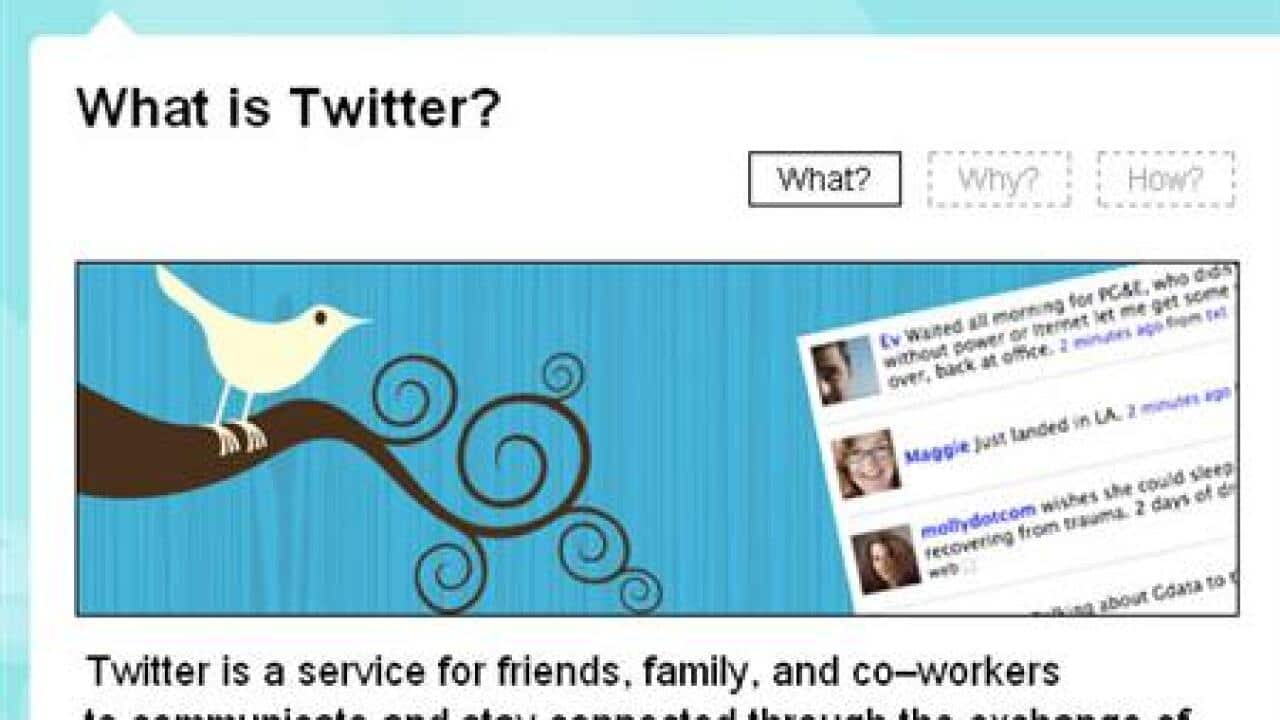With communications in Haiti ravaged by an earthquake, tech-savvy residents turned to Twitter to send pictures and news of the destruction while others used the Web service to mobilize appeals for aid.
Harrowing personal accounts, heart-rending pictures and rallying cries for relief for quake-ravaged Haiti spread swiftly on Twitter as the microblogging platform once again became a key communications tool during disaster.
Haiti solidarity groups sprang up on social network Facebook, meanwhile, including one that quickly attracted more than 142,000 members, and video of the aftermath of the 7.0-magnitude quake appeared on YouTube.
One clip on YouTube, which appeared to have been taken within minutes of the quake with a mobile phone, included images filmed from a hilltop of an enormous cloud of dust completely obscuring the city of Port-au-Prince.
In a Twitter message, Haitian-born hip-hop star Wyclef Jean, who now lives in the United States, said he was making his way to Haiti and urged his 1.3 million followers on Twitter to "pray for the people of Haiti n me please."
"Yele," the name of a charity foundation set up by Jean, was a top 10 "trending topic" on Twitter on Wednesday, and the website for his group, Yele.org, was struggling to handle a deluge of visits.
"Red Cross" and "Help Haiti" claimed other spots in Twitter's list of most popular items, and so did "Pat Robertson" after the controversial US preacher said Haitians had made "a pact to the devil."
With telephone lines disrupted by the quake but some Web connections still available, some of the first photos, video and eye-witness reports from Haiti came from users of Twitter.
One of the most gripping accounts came from Troy Livesay, who identifies himself on his blog, livesayhaiti.blogspot.com, as working with Heartline Ministries and World Wide Village in Haiti.
Livesay provided a stream of Twitter messages throughout the day on Tuesday on his account at @troylivesay.
"Just experienced a MAJOR earthquake here in Port au Prince -- walls were falling down. - we are ALL fine - pray for those in the slums," was his first "tweet."
It was followed soon afterwards by: "For those that don't know - Haiti does not enforce building codes."
Walking around, he said: "We saw a few bodies that had been pulled out of the rubble laying dead in the sidewalk... many others injured."
After nightfall, Livesay wrote: "Church groups are singing throughout the city all through the night in prayer. It is a beautiful sound in the middle of a horrible tragedy."
"Aftershocks continued all night long," he said the next morning. "The sun went down shortly after the big quake. It is up now. It is eerily quiet."
As Livesay gave a running account on Twitter of the devastation, Haitian radio host Carel Pedre documented it in pictures sent to Flickr and Twitpic interspersed with appeals for international aid.
Richard Morse, an American musician who said on his Twitter feed @Ramhaiti that he has lived in Haiti since 1985 and works at the Hotel Oloffson, also provided a window on the misery.
"What are the poor supposed to do... no homes, no jobs, no savings... no medical attention. Bodies half buried nearby," he wrote.
"A priest came to see me... I asked him why so many churches collapsed... he left without an answer... God works in mysterious ways," Morse said.
With Livesay, Morse, Pedre and others providing first-hand information via Twitter, The Los Angeles Times, CNN, National Public Radio, New York Times, Huffington Post and other media outlets created lists of Twitter accounts in Haiti for readers to follow.
Haiti solidarity groups appeared on Facebook meanwhile throughout the day including one from Italy which attracted more than 142,000 members and another, "Earthquake Haiti," which drew more than 53,000 members.
While the Internet was being used as a communications and rallying tool, the US Federal Bureau of Investigation warned potential donors of relief funds that it can also be used for fraud schemes.
"The FBI today reminds Internet users who receive appeals to donate money in the aftermath of Tuesday's earthquake in Haiti to apply a critical eye and do their due diligence before responding to those requests," the FBI said.

